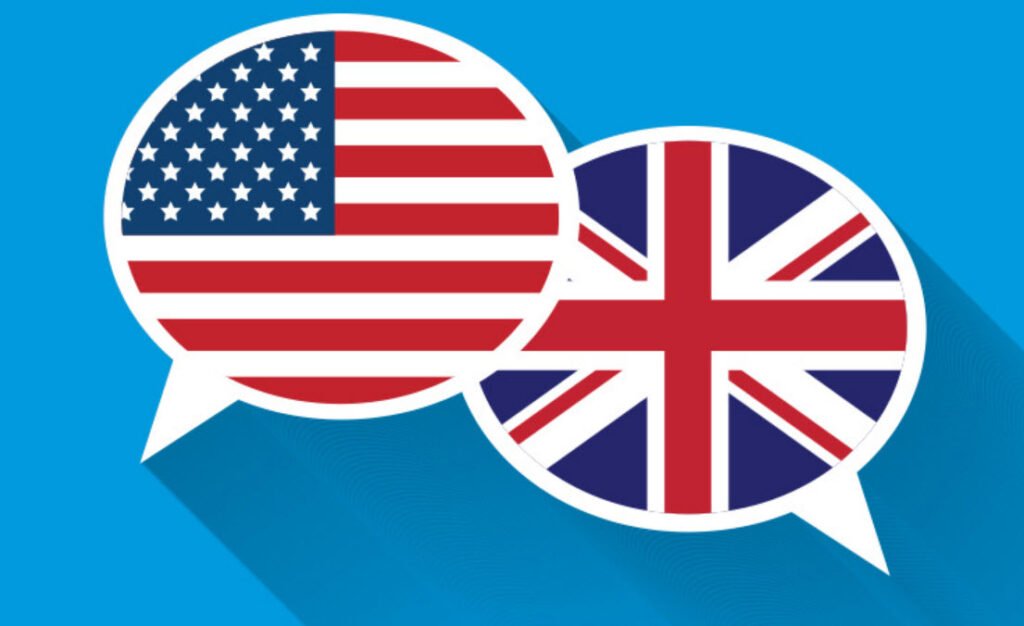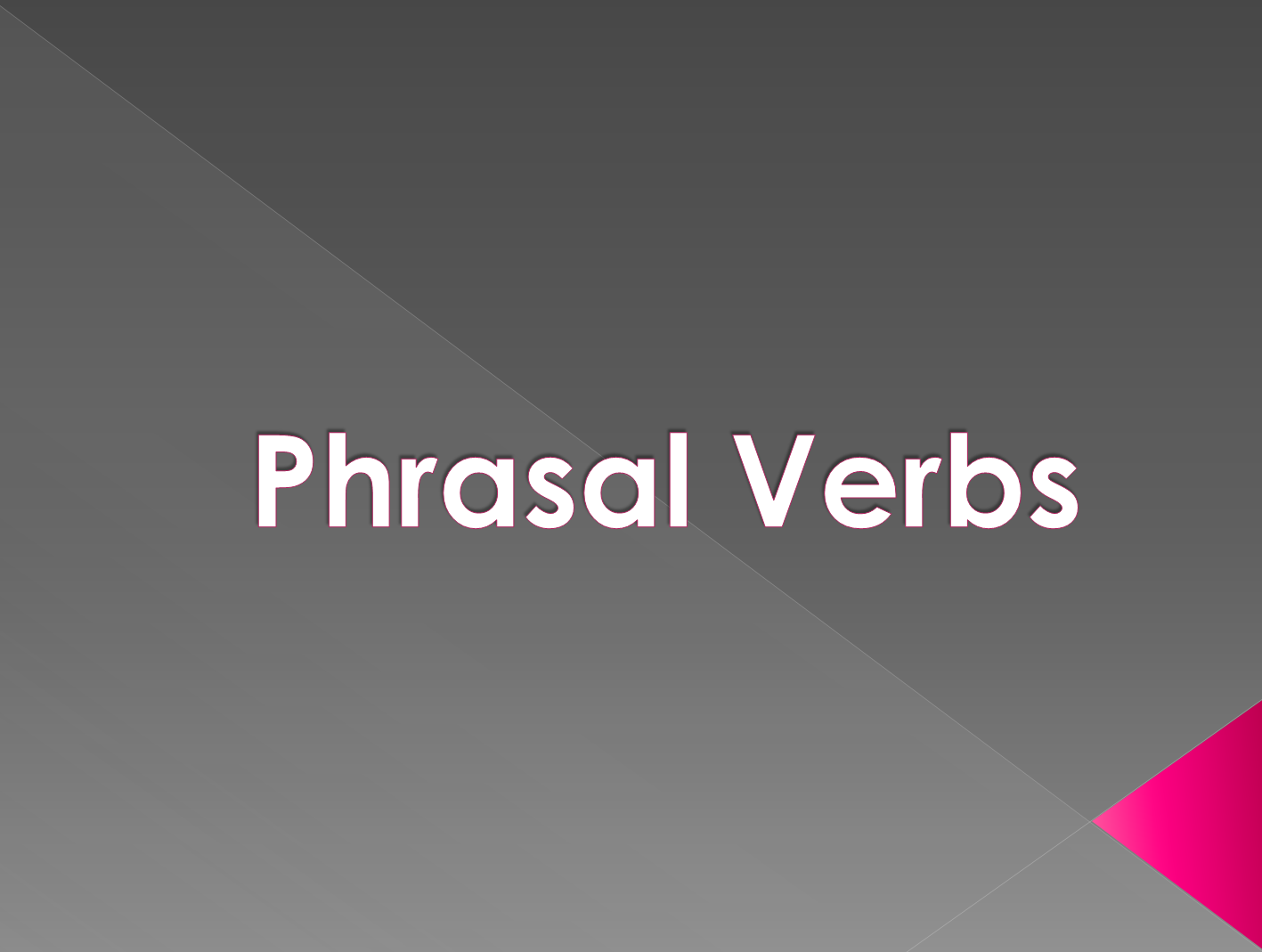
The grammar of British English and American English is very similar. There are a few differences but not very many, and most of them are minor points.
- Differences with verbs
- Differences with noun phrases
- Differences with adjectives and adverbs
- Differences with prepositions
- Differences with conjunctions
There are also some spelling differences, such as GB colour, US color. The main differences between British and American English are in pronunciation and in some items of vocabulary. A good dictionary such as the Oxford Wordpower Dictionary or the Oxford Advanced Learner’s Dictionary will give American variants in spelling, pronunciation and usage. The Hutchinson British-American Dictionary by Norman Moss explains the meanings of words which are familiar in one country but not in the other.
Differences with verbs
Linking verb + noun phrase
The British can use a noun phrase after a linking verb such as be, seem, look, feel.
- Mainly GB:
- It looks a lovely evening.
- She seemed (to be) a competent pilot.
The Americans do not use this pattern except with be and become.
- US:
- It looks like/It looks to be a lovely evening.
- She seemed to be a competent pilot.
2. Do for an action
The British sometimes use do to refer to an action.
- GB:
- He practises the piano, but not as often as he might (do).
- You should reply if you haven’t (done) already.
This usage is not found in American English.
- US:
- He practices the piano, but not as often as he might.
- You should reply if you haven’t already.
But Americans use do so.
- GB/US: You should reply if you haven’t done so already.
3. Do for emphasis
The British can use do to emphasize an offer or invitation in the imperative form.
- GB: (Do) have a glass of wine.
This usage is less common in American English.
- US: Have a glass of wine.
Americans also avoid the emphatic Do let’s… and the negative Don’t let’s…
- GB/US: Let’s not invite them.
- GB only: Don’t let’s invite them.
NOTE Let’s don’t invite them is possible in informal American English but not in Britain.
4. Question tags
Americans use tags much less often than the British. The British may use them several times in a conversation, but this would sound strange to an American. Americans use tags when they expect agreement. They do not often use them to persuade or argue.
- GB/US: Mary likes ice-cream, doesn’t she?
- GB only: You’ll just have to try harder, won’t you?
Americans often use the tags right? and OK?
- Mainly US:
- You’re going to meet me, right?
- We’ll take the car, OK?
5. Have, have got and have gotten
Have and have got
- GB: I’ve got/I have some money.
- US (spoken): I’ve got some money.
- US (written): I have some money.
Negatives and questions with have and have got
- GB/US: We don’t have much time. Do you have enough money?
- Mainly GB: We haven’t got much time. Have you got enough money?
- GB only: We haven’t much time. Have you enough money?
Negatives and questions with have to and have got to
- GB/US: You don’t have to go. Do you have to go?
- GB only: You haven’t got to go. Have you got to go?
Got and gotten
- GB:
- He’s got a new job. (= He has a new job.)
- Your driving has got better. (= It has become better.)
- US:
- He’s got a new job. (= He has a new job.)
- He’s gotten a new job. (= He has found a new job.)
- Your driving has gotten better. (= It has become better.)
Get someone to do something and have someone do something
- GB/US: We got the waiter to bring another bottle.
- Mainly US: We had the waiter bring another bottle.
Present perfect and past simple
Both the British and the Americans use the present perfect for something in the past which is seen as related to the present.
- GB/US:
- I’ve just met an old friend.
- Dave has already eaten his lunch.
- Have you ever seen St Paul’s Cathedral?
- I’ve never had a passport.
But Americans sometimes use the past simple in such contexts especially with just, already, yet, ever and never.
- Mainly US:
- I just met an old friend.
- Dave already ate his lunch.
- Did you ever see the Empire State Building?
- I never had a passport.
Gone and been
The British use been for ‘gone and come back’, but the Americans mostly use gone.
- GB/US: Have you ever been to Scotland?
- US only: Have you ever gone to Florida?
Will and shall
The British use will or shall in the first person. Americans do not often use shall.
- GB: We will/shall contact you.
- US: We will contact you.
The British use shall in offers, but Americans prefer should.
- Mainly GB: Shall I meet you at the entrance?
- Mainly US: Should I meet you at the entrance?
The British can also use Shall we… ? in suggestions.
- Mainly GB: Shall we go for a walk?
Americans would say How about a walk? or Would you like to take a walk?
Need and dare
Need, and dare, can be ordinary verbs. The British can also use them as modal verbs.
- GB/US: He doesn’t need to see the inspector. Do we dare to ask?
- Mainly GB: He needn’t see the inspector. Dare we ask?
Can’t and mustn’t
In Britain one use of must is to say that something is necessarily true. The negative is can’t. Americans can also use mustn’t.
- GB/US: There’s no reply. They can’t be home.
- US only: There’s no reply. They mustn’t be home.
Learned and learnt
Some verbs have both regular and irregular forms: learned or learnt, dreamed /dri:md/ or dreamt /dremt/ etc. The irregular forms are not very usual in America. The British say dreamed or dreamt; the Americans say dreamed.
The verbs dive and fit are regular in Britain but they can be irregular in America.
- GB/US: dive – dived – dived fit – fitted – fitted
- US only: dive – dove – dived fit-fit-fit
NOTE Fit is irregular in America only when it means ‘be the right size’.
- GB: The suit fitted him very well.
- US: The suit fit him very well.
It is always regular when it means ‘make something the right size’ or ‘put something in the right place’.
- GB/US: The tailor fitted him with a new suit.
The subjunctive
We can sometimes use the subjunctive in a that-clause. In Britain the subjunctive is rather formal. Americans use it more often.
- Mainly GB: My parents prefer that my brother lives/should live at home.
- Mainly US: My parents prefer that my brother live at home.
Differences with noun phrases
Group nouns
The British can use a singular or a plural verb after a group noun. • 156
- GB:
- The committee needs/need more time.
- Holland isn’t/aren’t going to win.
The Americans prefer a singular verb.
- US: The committee needs/need more time.
After a name the Americans always use a singular verb.
- US: Holland isn’t going to win.
Two nouns together
When we use two nouns together, the first is not normally plural: a grocery store, a word processor. There are some exceptions in Britain but Americans almost always use a singular noun.
- GB: a careers adviser an antique/antiques dealer
- US: a career counselor an antique dealer
The with musical instruments
The British use the with a musical instrument (play the piano), but Americans sometimes leave it out (play piano).
The with hospital and university
The British talk about a patient in hospital and a student at (the) university.
Americans say that someone is in the hospital or at the university.
This and that on the telephone
People in both countries say This is… to say who they are, but usage is different when they ask who the other person is.
- GB: Who is that?
- Mainly US: Who is this?
The pronoun one
Americans do not often use one meaning ‘people in general’; and they do not use one’s or oneself.
- GB: One must consider one’s legal position.
US: You must consider your legal position.
People must consider their legal position.
Numbers
The British use and between hundred and the rest of a number, but Americans can leave it out.
- GB/US: two hundred and fifty
- US only: two hundred fifty
Dates
There are a number of different ways of saying and writing dates. Americans often say July fourth. In Britain the fourth of July and July the fourth are the most usual.
Differences with adjectives and adverbs
Well, ill etc
The adjectives well, fine, ill and unwell referring to health usually come in predicative position.
- GB/US: Our secretary is ill.
But they can be attributive, especially in America.
- Mainly US: an ill man
Adjectives and adverbs
In informal speech we can sometimes use an adjective form instead of an adverb.
Americans do this more than the British.
- GB/US:
- That was really nice of her.
- It certainly is raining.
- Mainly US:
- That was real nice of her.
- It sure is raining.
Somewhere and someplace
In informal American English everyplace, someplace and noplace can be used as well as everywhere, somewhere and nowhere.
- GB/US: Let’s go out somewhere.
- US only: Let’s go out someplace.
Differences with prepositions
Out (of) and round/around
The British normally say look out of the window, although look out the window is possible in informal speech. Americans prefer look out the window. The British say either round the park or around the park. Americans prefer around the park.
Except for and aside from
Where the British use except for, Americans can also use aside from.
- GB/US: I’m all right now, except for a headache.
- US only: I’m all right now, aside from a headache.
Through and till/until
Americans can use through for the time when something finishes.
- US: They will stay in New York (from January) through April.
- GB/US: They will stay in London (from January) till/until April.
With through April, the time includes the whole of April. With until April they may leave before the end of April. We can also express the meaning of through like this.
- GB/US: They will stay in London until the end of April.
In British English we can also use inclusive. This is rather formal.
- Mainly GB: Monday to Friday inclusive
- US only: Monday through Friday
Idiomatic uses
- GB
- in Oxford Street
- at the weekend/at weekends
- a player in the team
- twenty (minutes) past ten
- ten (minutes) to three
- write to someone
- visit someone
- talk to someone
- protest about/against something
- US
- on Fifth Avenue
- on the weekend/on weekends
- a player on the team
- twenty (minutes) past/after ten
- ten (minutes) to/of three
- write someone/write to someone
- visit someone/visit with someone
- talk to/with someone
- protest something
- protest about/against something
Prepositions after different
- GB: Your room is different from/to ours.
- US: Your room is different from/than ours.
Differences with conjunctions
Go/Come and…
Americans can leave out and from this pattern.
- GB/US: Go and take a look outside.
- Mainly US: Go take a look outside.
In case and lest
The British use in case meaning ‘because something might happen’.
Americans use so or lest. Lest is formal.
- Mainly GB: Go quietly in case anyone hears you.
- GB/US: Go quietly so no one can hear you.
- Mainly US: Go quietly lest anyone hear you. (formal).
In America, in case often means ‘if.
- US: If you need/In case you need any help, let me know.
Immediately
Americans do not use immediately as a conjunction.
- GB/US: As soon as I saw him, I recognized him.
- GB only: Immediately I saw him, I recognized him.
- Idioms and Other Expressions Used For Talking About ‘Work’
- What Are Weasel Words?
- Money and Finance – Test Your Knowledge
- Phrasal Verbs, Idioms and Other Expressions Using ‘CUT’
- How to Say Time in English
- Idioms and Other Expressions Used For Talking About Money
- Shopping and Consumerism – Match the Correct Name
- Phrasal Verbs – Choose the Correct Verb
- Currency Markets – Choose The Best Words
- Personal Qualities – Use the Best Nouns and Adjectives








